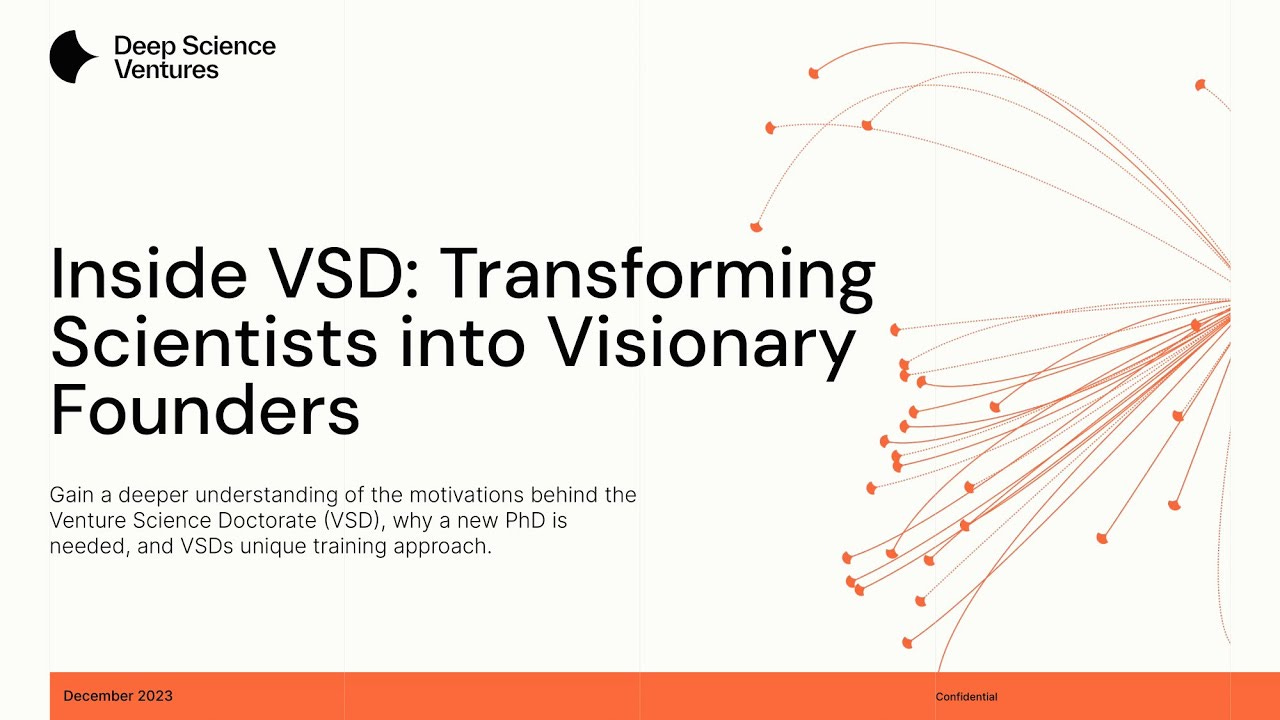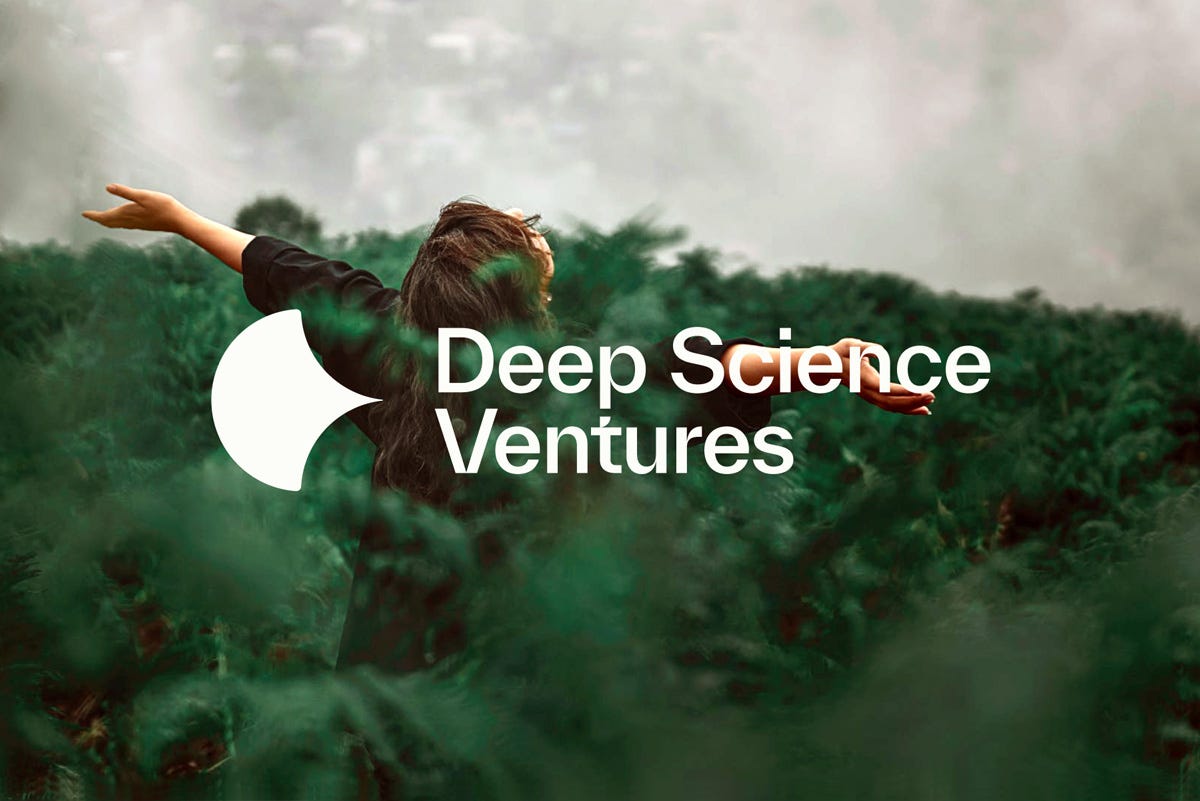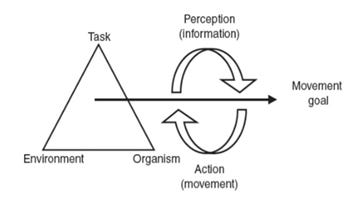Redefining the PhD Journey: Entrepreneurship Meets Deep Tech
Leveraging a clear understanding of learning science to redesign PhD programs around groundbreaking deep tech spinouts
With a background in ethnomusicology and a career that spans from teaching in Uganda to pioneering game-based learning in New York City, Aaron Appleton has consistently pushed the boundaries of traditional education paradigms.
In his latest endeavour at Deep Science Ventures (DSV), Aaron and the team’s work attempts to merge scientific inquiry with entrepreneurial zeal, aiming to cultivate a new breed of science PhDs. Unlike typical PhD programs, the Venture Science Doctorate works with learners to launch a deep-tech company as part of their studies.
I sat down with Aaron to learn more about how one goes about designing such a program and his larger learning philosophy. Our conversation delves deep into Aaron's insights on pedagogy (or heutagogy), learning design, and the vision behind the Venture Science Doctorate program.
(The interview has been condensed and edited for brevity)
Let’s start with your background. How did you get into education? Why are you passionate about this space?
For the past decade, I've delved into learning design, albeit arriving there through an unconventional route.
My academic background in ethnomusicology led me to establish Ensigo, a nonprofit dedicated to fostering music and arts collaboration projects across various cultures, spanning from Uganda to Guatemala. This journey introduced me to Somaliland's first archaeologist, Sada Mire, whose passion for blending physical and social sciences ignited my interest in science, guiding me toward a career in education.
This path took me from vice principal of an innovative school in Uganda to New York City, where I embraced game-based learning at Quest to Learn. Working alongside game designers, I witnessed firsthand the motivational power of games in learning, incorporating play into educational designs.

Let’s move on to your current role. What is Deep Science Ventures (DSV) and the Venture Science Doctorate?
At DSV, we are a London-based venture studio founded by Mark Hammond and Dom Falcao based on their experience commercialising IP at Imperial College in London.
DSV focuses on creating science companies in climate, agriculture, pharmaceuticals, and computation. Our approach involves scoping big societal outcomes and working backwards to identify suitable technologies, without requiring pre-existing IP from founders.
The Venture Science Doctorate, is an extension of DSV's model. It is a fully accredited, three-year PhD program aiming to equip participants with the skills to establish deep tech companies.
Unlike our 18-month Founders-in-Residence program designed for individuals with significant industry experience and PhDs, the doctorate is 3 years long. It is tailored for those earlier in their careers, offering a structured journey towards founding a science-based venture. In both models, we’ll take an equity stake in the spin outs for our sustainability.
How is this different from a traditional PhD? Why can’t a traditional STEM PhD do this?
The Venture Science Doctorate program differs from traditional PhDs in three key ways.
First, traditional science PhDs follow a linear model. If commercialization of research happens at all, the aim is usually then for an academic-corporate collaboration leading to spinouts. Unfortunately, this often becomes a case of a solution searching for a problem.
Second, there is a clear mismatch in talent, where academia doesn't necessarily foster essential business skills -it’s not part of the curriculum in a traditional PhD.
Third, this old model tends to rely on big corporations to acquire these spinouts, a path that hasn't proven very successful. Our program, in contrast, is designed to merge business acumen with academic rigour directly, aiming to cultivate ventures that are both innovative and viable in the real world.
What are the core pedagogical principles behind the Venture Science Doctorate? Could you walk us through the process of designing the curriculum?
I have to admit something. I don’t like the word pedagogy. It implies a top-down compliance-based approach to learning design. Starting with that mindset is why most learning experiences are transmissionist. I’m more interested in “heutagogy” which is where we start as DSV.
The core pedagogical principles behind the Venture Science Doctorate program pivot away from traditional, top-down educational methods towards a more dynamic, self-directed learning approach.
This shift is grounded in the belief that navigating the complexities of becoming a scientist-entrepreneur requires a customized learning journey, with two theories of learning– ecological dynamics and constructionism–at its heart.
Ecological dynamics blends ecological psychology and dynamical systems theory, emphasizing learning transfer and the importance of creating learning environments that mirror real-world scenarios. It’s often used in skill acquisition which makes it very relevant to what we are trying to teach.
Constructionism, or learning through making, further enriches this model by fostering tangible, interactive experiences.
This dual approach is reinforced by insights from embodied cognition, suggesting that learning is most effective when it is physically engaging and contextual.
What are the biggest challenges you've faced in implementing the VSD program, how do you plan to scale the program going forward?
Implementing the VSD program has presented two primary challenges: aligning digital learning approaches with effective real-world transfer, and achieving global accessibility amidst high operational costs - which feeds into your question on scale.
Despite all the hype of tech-driven educational solutions, ensuring learning transfers to the real-world is still very challenging. I see a lot of hype around educational tools that put the tech first, and that’s been one of our major challenges in implementing the program. I’m confident we do the in-person component well and we are getting better at the remote component.
In terms of scale, we see great demand for the program which is very promising. Unfortunately, we're on track to have a less than 1% acceptance rate, which I think is a shame because the quality of so many of these applicants is very high and we would love to be able to accept more.
Our goal is to reach a thousand scientists entrepreneurs per year, but the big bottleneck now is funding but we have great partners and I’m confident we will figure it out.
I hope you enjoyed the last edition of Nafez’s Notes. I’m constantly refining my personal thesis on innovation in learning and education. Please do reach out if you have any thoughts on how to make thinking more visible or any other ideas. If you are building a startup in this space I’d love to hear from you!
If you are new here you might also enjoy some of my most popular pieces:
The Gameboy instead of the Metaverse of Education - An attempt to emphasize the importance of modifying the learning process itself as opposed to the technology we are using.
Using First Principles to Push Past the Hype in Edtech - A call to ground all attempts at innovating in edtech in first principles and move beyond the hype
We knew it was broken. Now we might just have to fix it - An optimistic view on how generative AI will transform education by creating “lower floors and higher ceilings”.




